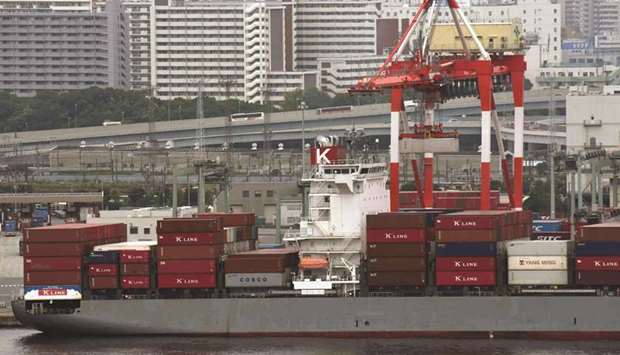Exports were seen rising 5.6% in August from a year earlier, the poll of 16 economists found, after a gain of 3.9% in July.
Imports likely grew 14.9% last month due to higher oil prices, which would result in a trade deficit of ¥468.7bn ($4.19bn) for the month, the poll showed.
In July, imports grew 14.6%, and the trade deficit was ¥231.2bn.
“There are no clear signs that global trade friction has affected Japan’s exports,” said Takeshi Minami, chief economist at Norinchukin Research Institute.
“But the pace of growth in the nation’s exports is sluggish despite a moderate expansion in the global economy, which is a worry for the Japanese economy.”
In July, Japan’s export growth slowed with shipments of cars to the Unites States sinking.
Total export orders shrank slightly in August due to weaker demand from China, a business survey showed.
Japan and the US will likely hold a second round of trade talks on September 21 between Economy Minister Toshimitsu Motegi and US Trade Representative Robert Lighthizer.
Tokyo wants to avert steep tariffs on its car exports and fend off US demands for a bilateral free trade agreement.
The finance ministry will release the trade data at 8:50am Tokyo time on September 19.
Japan’s core consumer inflation rate likely ticked up in August on energy costs and prices of accommodation as well as cellphone communication, analysts said.
The nationwide core consumer price index (CPI), which excludes fresh food prices but includes fuel costs, likely rose 0.9% in August from a year earlier, the poll showed, slightly up from 0.8% growth in July.
“We can not say that demand is boosting consumer inflation yet. We expect core CPI will stay around 0.9% for a while,” said Yoshiki Shinke, chief economist at Dai-ichi Life Research Institute.
The government will release the CPI data on September 21 at 8:30am.
Economists expect the Bank of Japan will keep its short-term interest rate target at minus 0.1% and the 10-year government bond yield target at around 0% at its two-day policy meeting on September 18-19.
In July, the BoJ pledged to keep its massive stimulus in place but made tweaks to reduce adverse effects of its policies on markets and commercial banks.
The central bank is expected to debate next week whether escalating global trade tensions could undermine its confidence that the export-reliant economy will sustain a moderate expansion.

